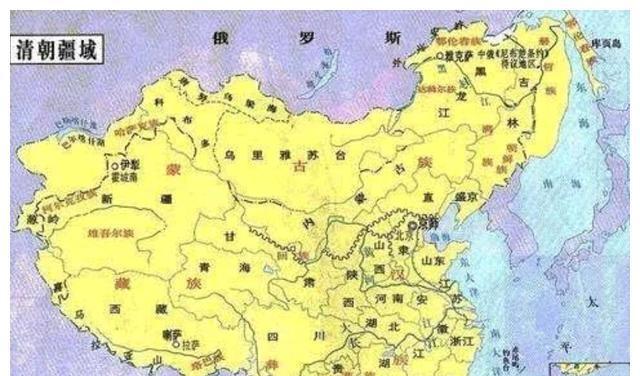
First, there is no motivation to conquer
Now, the Indochina Peninsula is vast, the light conditions are good, suitable for farming, but hundreds of years ago, it was a relatively barren and backward barren land. At the same time, the Qing Empire was a first-class power that was more economically, culturally, and militarily superior, and some disdained to compete for this backward and barbaric land.
Moreover, there are many swamps on the Indochina Peninsula, the rivers are dense, the mountains are longitudinal, the terrain is more complicated, starting from Yunnan, it is necessary to overcome the obstacles of mountains and rivers, which is not conducive to the northern cavalry group to fight. At the same time, it is still a typical tropical monsoon climate, the living environment is special, and the inland people have many diseases and diseases here, which is not conducive to the use of troops, so the Indochina Peninsula really makes the rulers of the Qing Dynasty uninterested.
Second, the Empire's finances were tight
Since the Battle of Jinchuan, the expansion plan of the Qing Empire is also nearing the end. Because from the pacification of Kaldan, the conquest of southern Xinjiang, the annexation of Tibet, the pacification of San Francisco, the recovery of Taiwan, and the capture of the big and small Jinchuan, this series of centuries-long military activities made the Qing Dynasty's finances obviously difficult. Especially in the Battle of Jinchuan, the opponent was only a few tens of thousands of people, but hundreds of thousands of Qing troops fought for more than ten years to win, and also spent 70 million taels of silver of the empire, equivalent to the total financial income of the Qianlong Dynasty in two years.
In addition, the construction of state-level large-scale projects in the Qing Dynasty is also in full swing. For example, the management of the Yellow River, the construction of the Yuanmingyuan, and the qianlong lower Jiangnan all cost a large amount of silver, although the family assets saved by the Kang and Yong Emperors were quite abundant, but also made the Qianlong Emperor feel strong financial pressure, so he chose to stop external expansion.
Third, internal digestion and absorption problems
After the Battle of Jinchuan, the rulers of the Qing Dynasty realized that due to the limitations of the geographical environment, the Qing Empire's external expansion reached a bottleneck period, and the country's territory was large enough, but internal problems were full of contradictions.
Just like the big and small Jinchuan, within the empire, especially in the areas where the provinces meet, there are still nearly independent "foreign lands". Because of the difficulty of administrative jurisdiction and the complex terrain, these places are often the hardest hit areas of tax evasion, so the Qing Empire should spend more efforts to digest and absorb these areas well and incorporate them into the framework of centralized rule, especially to strengthen the central government's control over remote areas, with political and economic means as the mainstay, supplemented by military means, to ensure the stability of the Qing Dynasty.
Although the Qing Dynasty adopted the measure of stopping the expansion war, it was not true that there were no interests and conflicts with the countries on the Indochina Peninsula. Just like in the late Qianlong period, the Qing Dynasty and Burma fought a war over territorial and resource control, and the Qing Dynasty barely overcame Burma through superior troops, and then Burma was incorporated into the tributary system against the Qing, but not conquered.